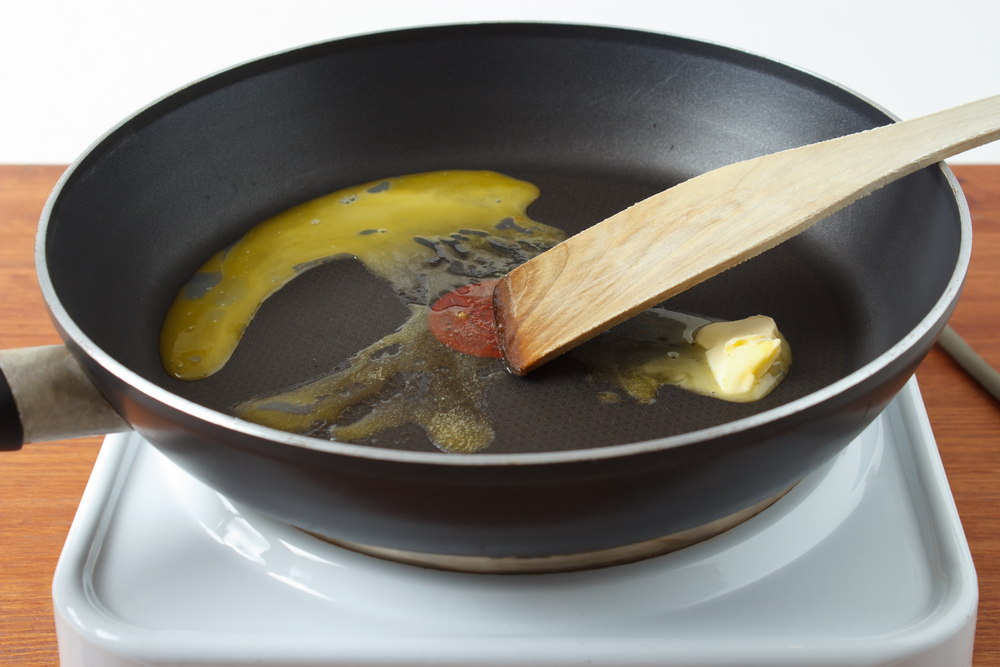In humans, cases of “Teflon flu” are increasing.
Others are reading now
Reports of “polymer fume fever,” caused by inhaling fumes from overheated non-stick pans, are on the rise. Known colloquially as “Teflon flu,” this condition is associated with cooking in non-stick cookware and raises questions about the safety of these pans.
A Flu-Like Illness
Teflon, the commercial name for polytetrafluoroethylene (PTFE), is considered chemically inert, non-toxic, and non-flammable under normal usage conditions, according to a report published in Earth and Planetary Sciences. However, problems arise when a pan is left on a burner for too long and overheats or dries out, according to researchers at the National Capital Poison Control Center.
The National Library of Medicine explains that “polymer fume fever” is a flu-like illness linked to inhaling thermal degradation byproducts of fluorocarbons. Overheating non-stick cookware coated with PTFE (Teflon®) is the most common exposure route. Symptoms typically include fever, malaise, shortness of breath, chest tightness, and a dry cough occurring a few hours after exposure. Significant exposure can lead to pulmonary edema (potentially life-threatening lung congestion) or leukocytosis (an elevated white blood cell count).
For pet owners, the Poison Control Center warns that “even normal cooking temperatures can release enough toxic fumes to cause illness in birds, often resulting in sudden death as the first sign.”
Also read
An Underreported Condition
In humans, cases of “Teflon flu” are increasing, with 267 suspected cases reported last year—the highest since 2000, according to the Washington Post. Experts believe the condition is underreported, as people with fever and body aches may not immediately connect their symptoms to inhaled fumes. Maryann Amirshahi, co-medical director of the National Poison Center in Washington, suggests that many cases go unrecognized.
To prevent the illness, experts recommend using a range hood for ventilation and never heating a non-stick pan without something in it. “Even starting with butter or oil can reduce the chances of the coating breaking down,” says Shawn Matijevich, a culinary instructor at the Institute of Culinary Education.
Some experts suggest ditching non-stick products altogether. Sisavath Keovilay, PhD, a chef and department chair at Keiser University Center for the Culinary Arts, recommends investing in a good cast iron skillet. “When properly used, nothing sticks to a cast iron pan,” he told Food & Wine.








